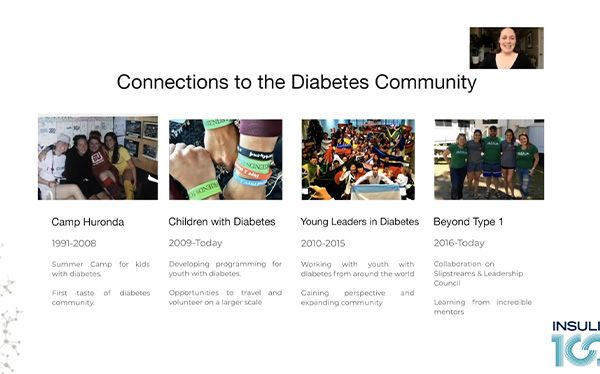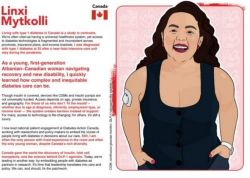Supporting the Whole Health of Young Adults with Type 1 Diabetes: A New Approach to Diabetes Distress

Posted date: August 07, 2025 |
Young adults with type 1 diabetes (T1D) face daily self-management challenges that go far beyond blood sugar levels. Mental health struggles (including diabetes distress (DD)) are common, yet care systems often fail to address the emotional and psychological realities of living with diabetes. A new pilot study is changing that.
The TECC-T1D3 trial, supported by Diabetes Action Canada and co-designed by young adults with lived experience, is testing a virtual, technology-enabled collaborative care model tailored to the needs of young adults navigating life with T1D and DD.
Here are three key elements of this innovative project:
1. Mental health is diabetes care—especially for young adults
The protocol aims to address a critical gap in care: traditional diabetes services often prioritize glycemic outcomes over emotional well-being. Yet nearly 40% of people with T1D experience diabetes distress, which can impact self-management, mental health, and long-term outcomes. TECC-T1D3 has been co-designed to offer a more holistic model, centering emotional support as part of everyday diabetes care.
2. Co-designed, patient-led solutions are needed
TECC-T1D3 was co-developed with young adults living with T1D, whose insights shaped everything from intervention design, the content, to the recruitment strategy. As a result, the intervention is delivered virtually through a health coach, supported by a virtual care team, and uses everyday technologies like phone calls and text messaging to reduce cognitive burden. Most importantly, TECC-T1D3 has been designed to prioritize trust, flexibility, and connection—values identified by patient partners as essential to success.
3. Scalable and compassionate care is possible
Unlike many mental health interventions that rely on specialized personnel or proprietary technology, TECC-T1D3 has been intentionally designed for scalability. Health coaches are selected based on relational skills rather than clinical credentials, making it possible to scale the model across diverse communities while maintaining personalized, culturally responsive support.
As the trial progresses, findings will inform the next stage of implementation—laying the foundation for broader, patient-informed mental health support in diabetes care across Canada.
Learn More
Read the full TECC-T1D3 protocol, published in Digital Health: https://journals.sagepub.com/doi/10.1177/20552076251365134
Diabetes Action Canada is proud to support this important work and the patient partners whose leadership is transforming how care is delivered.
Featured in Article
Mangialardi, Natalie
Linxi Mytkolli
Related Webinars

Living and Thriving with Type 1 Diabetes
Associated Programs

Mental Health and Diabetes
Related Podcasts

Supporting the Mental Health Needs of People with Type 1 Diabetes
Diabetes is a 24-hour condition with no vacations or days off. Those who live with it understand that diabetes distress – the term for mental health challenges specific to diabetes – is very real and can be very challenging to manage. It can also have a big impact on other aspects of diabetes care – like this A1Cs doctors are always checking.
This episode’s guests will give listeners lots to think about when it comes to diabetes and mental health – and how Diabetes Action Canada is at the forefront of new programs aimed at improving mental health in everyone with diabetes.
Host Krista Lamb with talk to guests Dr. Carly Whitmore, an Assistant Professor in the Faculty of Health Sciences at McMaster University, and Linxi Mytkolli, Diabetes Action Canada’s Lead of Patient Engagement and Knowledge Mobilization and a person living with diabetes.









